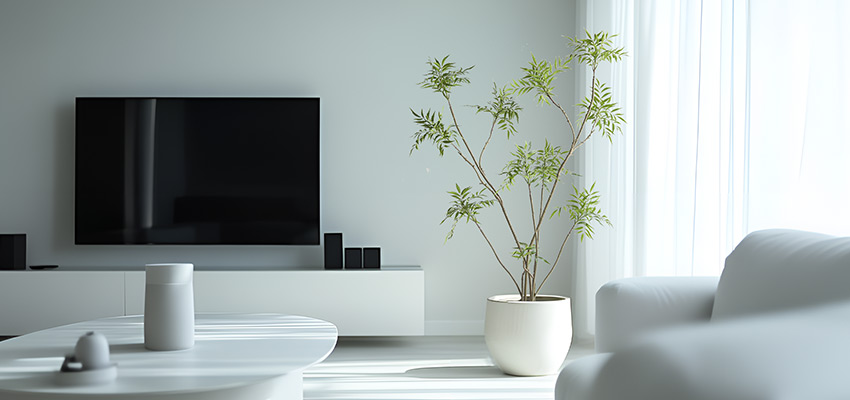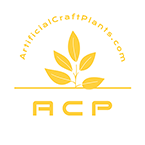Many people wonder if artificial plants are suitable for Feng Shui. The practice, which emphasizes harmony and balance in our surroundings, might seem to discourage non-living elements like fake plants. But are artificial plants truly harmful to Feng Shui, or can they bring benefits?
Feng Shui focuses on balancing energy, and some people question whether artificial plants can positively or negatively impact this flow. Let's explore if these plants are a good fit.
As Feng Shui continues to influence interior design, it’s no surprise that many look to plants to improve energy in their homes or businesses. Real plants are often seen as powerful tools in this ancient practice. However, in today’s fast-paced world, artificial plants have gained popularity due to their low maintenance and longevity. This raises a question: can these non-living decor items provide the same energetic benefits? Keep reading to uncover the truth about artificial plants and their place in Feng Shui.
The Role of Plants in Feng Shui
In Feng Shui, plants are considered symbols of growth and vitality. They’re believed to enhance the flow of positive energy (Chi) and attract good fortune, especially when placed in the right corners of a home or office. Some plants are more favorable than others. For example, the lucky bamboo or the money tree are popular for their associations with wealth and prosperity.
In Feng Shui, real plants symbolize vitality and wealth. But can artificial plants mimic this energy? Let's break down how they impact your environment.
When choosing plants for Feng Shui, it's important to consider both their symbolic meaning and their effect on the space. Real plants are living things, and they naturally purify the air and provide a sense of serenity. However, not everyone has a green thumb, and maintaining real plants can be time-consuming. In these cases, artificial plants come into play as a possible alternative. But do they hold the same power to affect the energy flow in your space?
Can Artificial Plants Affect Chi?
Artificial plants don’t grow, breathe, or change like real plants, which could be seen as a drawback in Feng Shui. Feng Shui emphasizes life and movement, and since artificial plants lack these qualities, they may not bring the same dynamic energy. However, this doesn’t mean they’re entirely out of the question.
While artificial plants don’t grow, they still influence the energy in your home or office. Let’s examine whether they can positively impact your space.
One key aspect of Feng Shui is maintaining balance. Artificial plants might not contribute to the natural flow of Chi the way real plants do, but they can still support balance when used strategically. For example, placing artificial plants in corners or areas that need more energy could help brighten up those spaces. Plus, they don’t require sunlight or constant care, making them a practical choice in areas where real plants might struggle.
How to Choose Artificial Plants for Feng Shui
If you decide to use artificial plants in your Feng Shui practice, it’s important to choose the right ones. The wrong type of fake plant, like one that’s overly large or made from cheap, plastic materials, can disrupt the balance. On the other hand, carefully chosen plants made from high-quality materials and placed thoughtfully can still enhance your space.
Selecting the right artificial plants matters for Feng Shui. With the right choices, they can help improve the energy in your space.
Here are some tips for selecting artificial plants that complement Feng Shui principles:
-
Material matters: Choose artificial plants made from high-quality materials, such as silk or fabric, to ensure they look natural and lifelike. Low-quality plastic plants can appear cheap and disrupt the energy flow.
-
Focus on shapes: Round or soft-edged plants are generally favorable in Feng Shui, as they promote smooth energy flow. Avoid plants with sharp edges or overly spiky leaves, as they can cause negative energy.
-
Colors and textures: Opt for colors that resonate with the purpose of the space. Green plants represent growth and renewal, while flowers in red or pink can enhance passion and love.
-
Placement: Position the plants where they can contribute to the overall balance of your space. For instance, place plants in the wealth corner (southeast) to attract prosperity or in the health area (east) for vitality.
Do artificial plants bring the same energy as real plants in Feng Shui?True
Not entirely. While artificial plants don’t possess the life force of real ones, they can still positively affect Chi if placed strategically in the right spaces.
Can artificial plants never have a place in Feng Shui?False
False. When chosen thoughtfully, artificial plants can still enhance the energy of a space, especially in areas where real plants are impractical.
Conclusion
Artificial plants can be beneficial in Feng Shui if carefully chosen and strategically placed. They can help balance energy and brighten spaces where real plants may struggle.

Hello everyone, I'm Li!By day, I'm a seasoned expert in the artificial plant industry, starting from the factory floor and working my way up to running my own successful business. In my free time, I’m passionate about running and often join trail runs with friends.Here to share what I've learned—let's grow together!






